It has been a couple of weeks since Sridevi, the legendary Indian actress, passed away. I found myself aching pretty badly following her demise, though I hadn’t seen all of her movies from when she was at her peak. I had seen her most popular stuff, like Mr. India (1987), English Vinglish (2012), and Nagina (1986), and being a Keralite, I was also made to sit down and see her Malayalam film Devaragam from 1996 (more than once, I might add). A week before her passing, I had been going on an Amitabh Bachchan film binge, which allowed me to watch 1984’s Inquilaab as well, in which she plays the heroine, a woman witness to her husband’s mental breakdown. Sridevi’s prominence in Indian cinema was evident in her works. She was a powerhouse of a woman, a great dancer, a wonderful actress, and of course, a charming beauty. There was something about her that was undeniably captivating, and despite my aforementioned lack of familiarity with a lot of her films, I was completely enchanted by the artist she was based simply on the little that I saw.
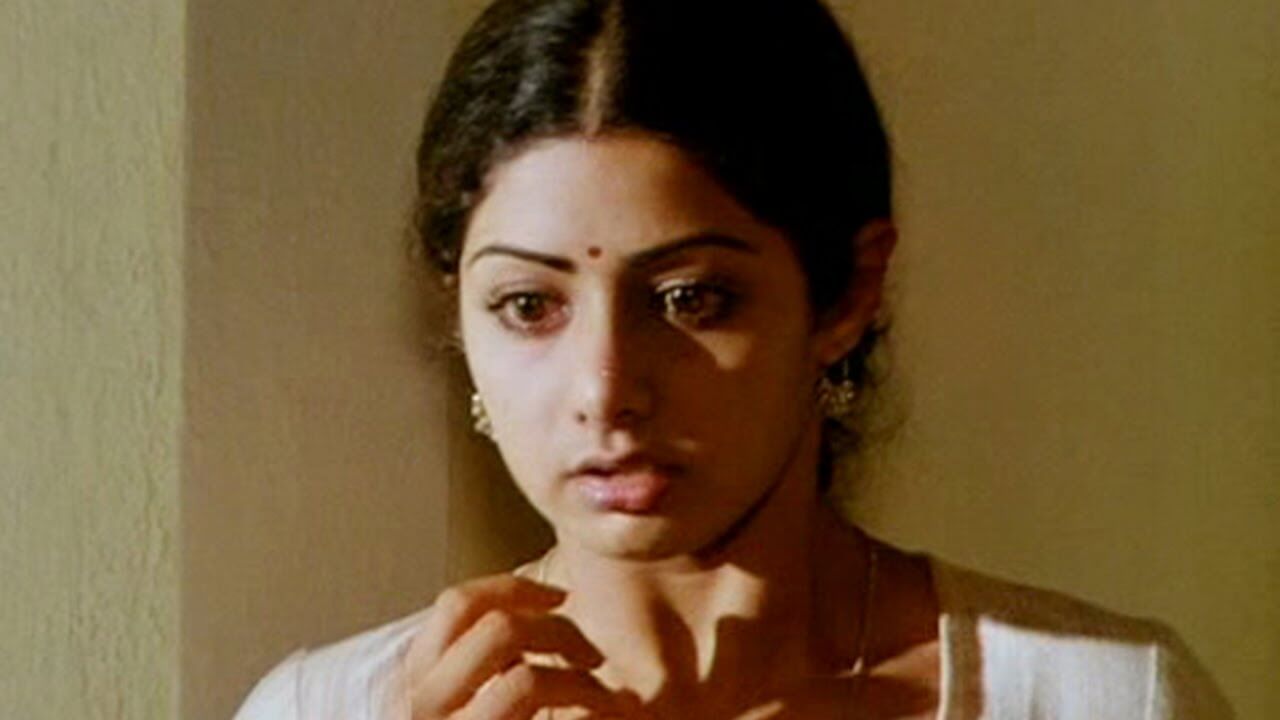
Still, I don’t think any of the films I talked about in the previous paragraph were what scarred me deep and hurt me most when I heard about her passing. Mr. India’s ‘Hawa Hawai’ isn’t much of a celebration to listen to now, and Himmatwala (1983)’s ‘Naino Me Sapna’ only makes me long for Sridevi’s electrifying presence in this world. Her big break in the Tamil film industry, 16 Vayathinile (1977), though only slightly above average as a film, has songs like ‘Senthoora Poove’ that are downright depressing to hear in the aftermath, at least, for me. All that being said, there’s only one movie I recall again and again, with its enchanting lullaby ringing in my head every time I think of the departed actress, and with a performance so breathtaking that it easily puts her a couple steps above most other Indian actresses for me. It’s the first Sridevi film I saw, and I was quite young when I saw it. Maybe it’s because the stuff you see at a younger age stick around in your head longer than the stuff you see at a later time in your life, but 1982’s Moondram Pirai has been etched onto my brain, in a way that I won’t be able to forget it, ever.

I had never been too keen on researching Sridevi’s personal life prior to her death. I knew about her marriages and children, and I knew about her start as a child actress in Malayalam cinema, but I never bothered to find out any more. My sole connection to Sridevi was through her characters. In Moondram Pirai, she plays a young woman who becomes mentally disabled following a car accident, causing her to think and behave like a six or seven year old, about a decade and a half away from how old she really was. After a string of mishaps, Sridevi’s character ends up in a brothel, wherein she meets a kind-hearted, empathetic young man (Kamal Hassan) who sees her plight and rescues her from the place. The film then goes on to detail their relationship, akin to that of a father and his daughter, as the two live, play, and laugh together. The film is flawed without question, having unnecessary characters (like the one played by Silk Smitha) take up way too much screen-time, and a misplaced song (among other minor misplaced moments) a third into the picture, but looking past that, I’m willing to call Moondram Pirai a fine piece of filmmaking. Though at times it relies on strained emotional manipulation to stimulate its viewers, the film is effective for the most part. Sridevi’s character is named ‘Bhagyalakshmi’, and we don’t know much about her outside of the portion we see in the movie, during which time her unsound mind gives off characteristics closely connected to that of a naughty, wailing, innocent little girl.
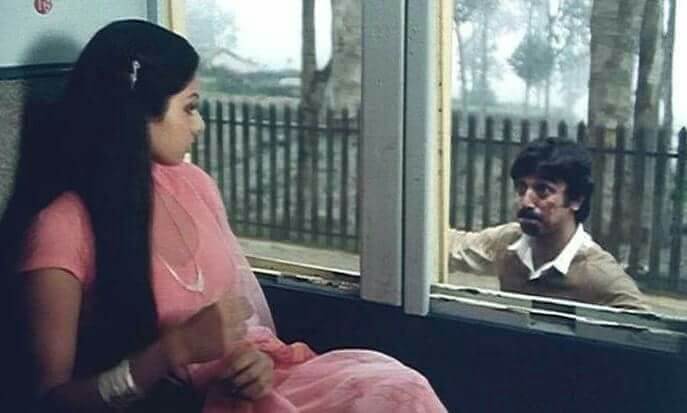
Balu Mahendra, the film’s director, has an intention with this woman-child that is very clear. He wants the audience to empathize with her naive and helpless nature, all the while connecting with Hassan’s ‘Cheenu’ who looks after the young girl. Sridevi and Kamal Hassan give two of the greatest performances Indian cinema has ever witnessed here. They play off of each other excellently and have magnificent chemistry. Such connection is required in a film of this kind, because one of its core (and most difficult) themes is repressed sexuality. I don’t think it’s right to assume that Cheenu never desires Bhagyalakshmi throughout the runtime of the film, because there are a couple of moments (and an in-your-face dream sequence) that underline a possible romantic interest within the already informal couple. Cheenu never takes advantage of Bhagyalakshmi, though. Silk Smitha, almost contrastingly, plays a character who tries to flirt with Cheenu, using her sensuality as bait. Through the man’s relations with different women, the audience is able to form an outlined character study of him within their minds. Cheenu comes off as a harmless, lonely, empathetic gentleman, with sudden sidesteps that are only natural in occurrence for the average male. This smoothens the viewer’s relation with the man.
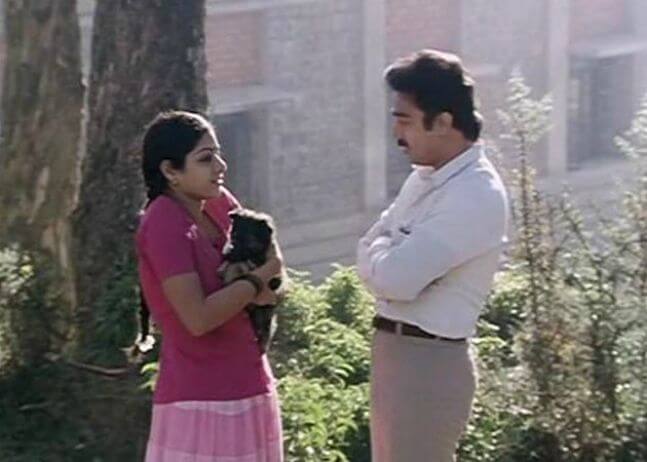
Bhagyalakshmi begins to feel safe with Cheenu, living with him in his isolated house amidst the misty skies of Ketti. She has no one else to feel close to, and is by all means a completely dependent individual. Sridevi’s taking on of the role makes the character very easy to fall for and love, so much so that we attach ourselves with her need for company and comfort. The film opens questions relating to maturity and understanding, and these can be directed towards both protagonists. They have spurts over each other’s stupidities and battle verbally to convey messages that are on-the-whole pointless and unworthy of argument, but by the end of the day, they cannot separate from each other. In a way, Cheenu’s secluded lifestyle makes him almost as dependent on Bhagyalakshmi as she is on him. His need to stay with her is more of mental release than a gap fill. Perhaps, being a school teacher, he has found interacting with gullible, uncluttered minds simpler than the complex pit of emotions and drama that home themselves in the minds of adults.
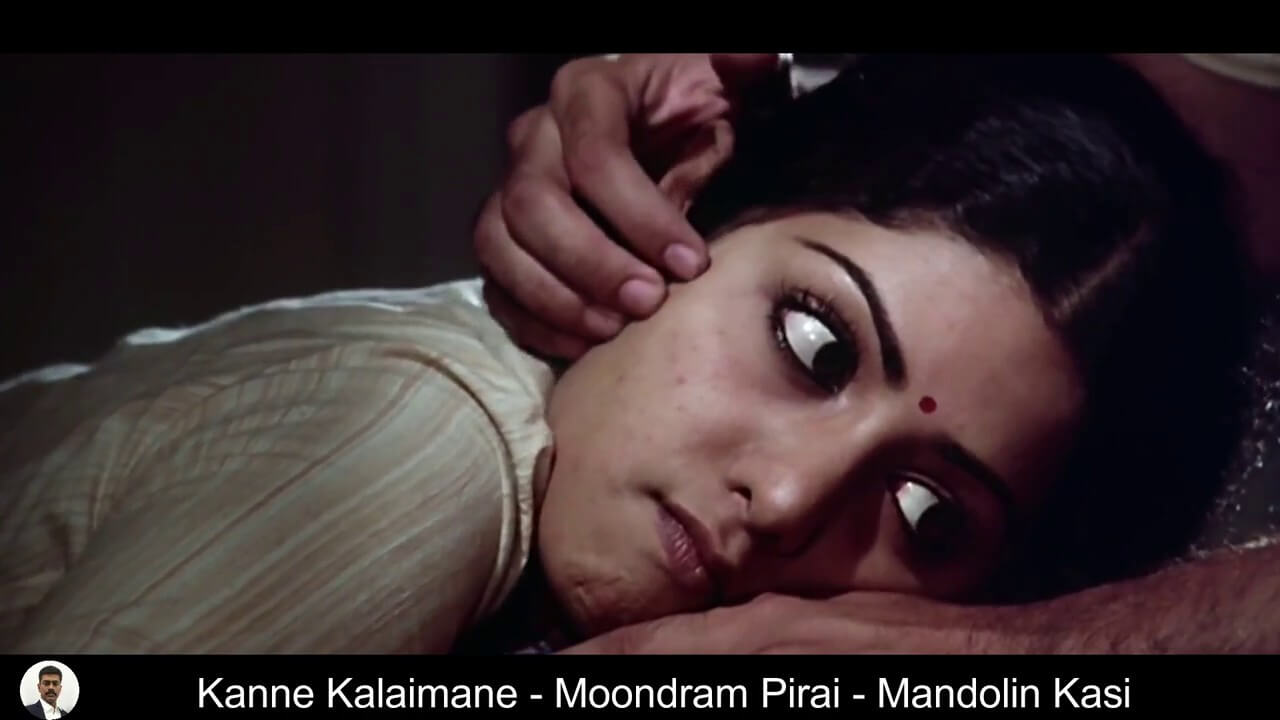
Daytime for the two is filled with fun and play. Cheenu comes back from school and makes up games (mostly on the ‘pretend’ side of things) based on the happenings of the day so far. Though they aren’t surrounded, people come and go from here and there during the time they spend outside in the early to middle hours of the day. Their neighbor, an old lady, comes around their place from time to time, and occasionally takes an authoritative charge over their relationship. At night, though, it is just the two of them, and with the quiet of the dark skies (along with the warmth of patterned blankets) comes an increased sense of intimacy evident in how comfortable and open the two of them appear to be with each other. It is during this time that Cheenu tells fantasy stories to Bhagyalakshmi, feeds her, gets her to dress up in a sari, tell tales from his own past, and sings to her. ‘Kanne Kalaimane’, the evergreen lullaby of Moondram Pirai, could easily summarize the emotions of the film, especially when joined with the scenes that take place during the song. I think, ultimately, it is in these moments of utter closeness that I find my biggest attraction towards Bhagyalakshmi, or for that matter, Sridevi herself. Unlike many other films that experiment with this type of relation building, I do not at all feel like a voyeur, peeking into the lives of two individuals going about their own private business. Rather, I assume the role of Kamal Hassan’s character, and I feel as though I’m a part of the story. It’s amazing how this movie plays with our heads.

With Sridevi’s passing, for me at least, it is her character in Moondram Pirai that I miss the most. To have such an innocent, unquestioning little soul just die isn’t something I can take all that well, especially after having felt for her so during the two hours that the film runs for. Sridevi’s most dynamic set of roles came from her films produced in South India, particularly in Tamil Nadu. Sigappu Rojaakal (1978) is another picture wherein Kamal Hassan and Sridevi play characters who are involved in a strange relationship (although there is a more evident hint of sexual desires there, one of the most controversial Tamil films ever made). Moondram Pirai takes things simple. It’s a small film (in scale), with a central location so tiny it literally only consists of a tiny house and some plants surrounding it. It revolves around two socially distant individuals trying to find meaning in their company together by forgetting inner feelings and the world outside. Like I mentioned before, the scenes taking place at nighttime in this movie have a special something about them that pulls you into their space. You take care of the young girl with Kamal Hassan. The love you have for that character, at least during these scenes, is almost boundless.
You may also like: Padman Movie Review | When taboo meets innovation.
The ending of the film is one I won’t spoil here, but it is certainly the kind that was made to give the audience a better understanding of the feeling of missing something (Balu Mahendra based the film on his own relationship with his wife Shobha, an actress who committed suicide early on in her life, a couple months after their marriage). Pivotal scenes from Moondram Pirai play over and over in my head now. Sridevi’s little giggles and laughs, her childish facial expressions, her character’s happinesses and sadnesses, and all that. I can’t believe Sridevi is no more. The world felt so beautiful with her in it, but it took her passing to make me realize that. We’ve lost a thing of beauty, a source of charm and attraction, a woman like no other, and Indian cinema has been dented. Rest in peace, Sridevi. I miss you.
You may also like: Ranveer Singh’s evil act is the only beating heart of this otherwise deadpan drama








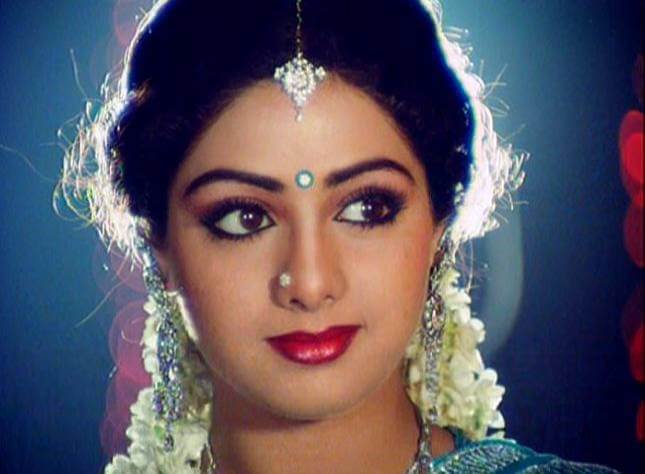






Add Comment